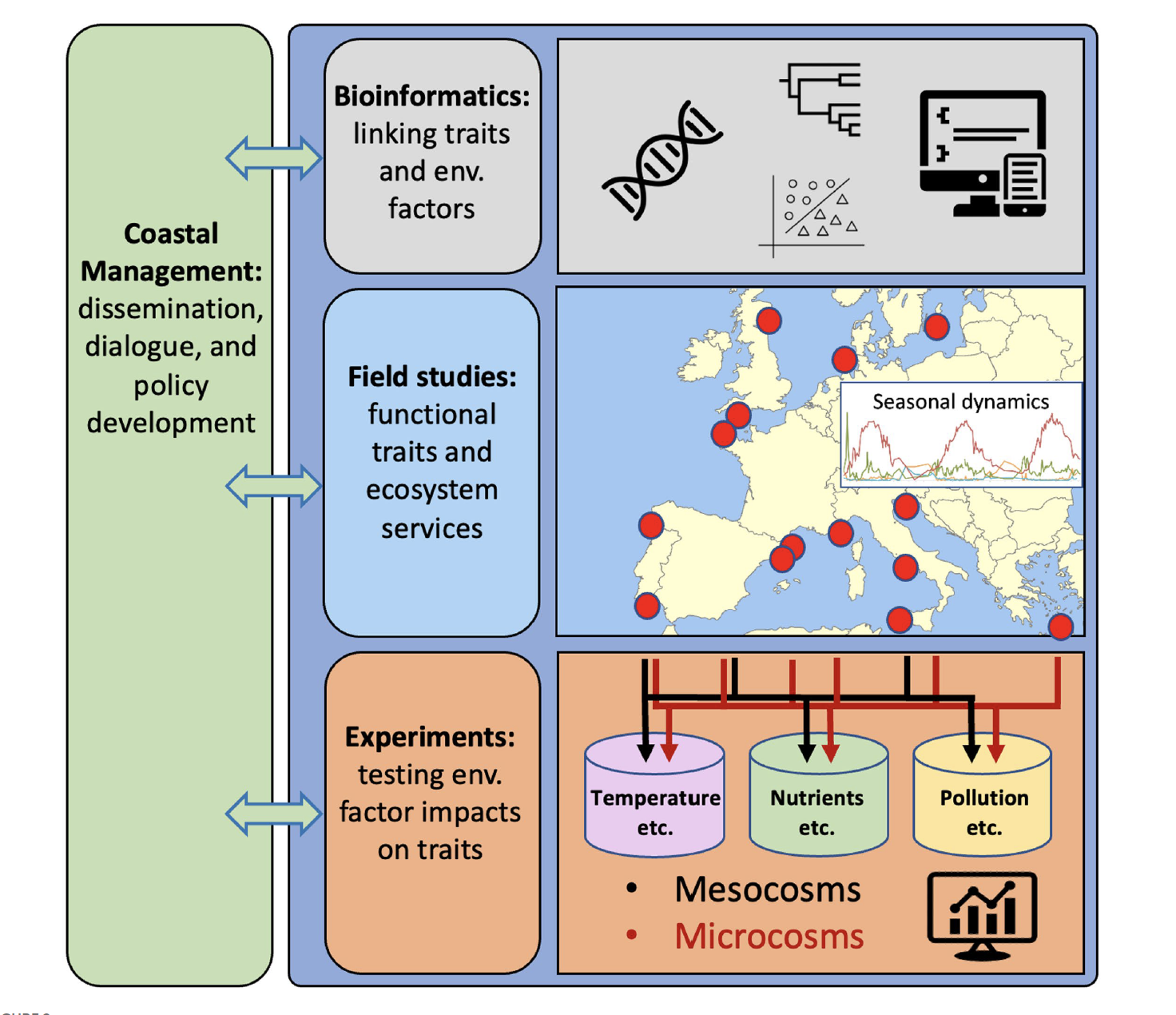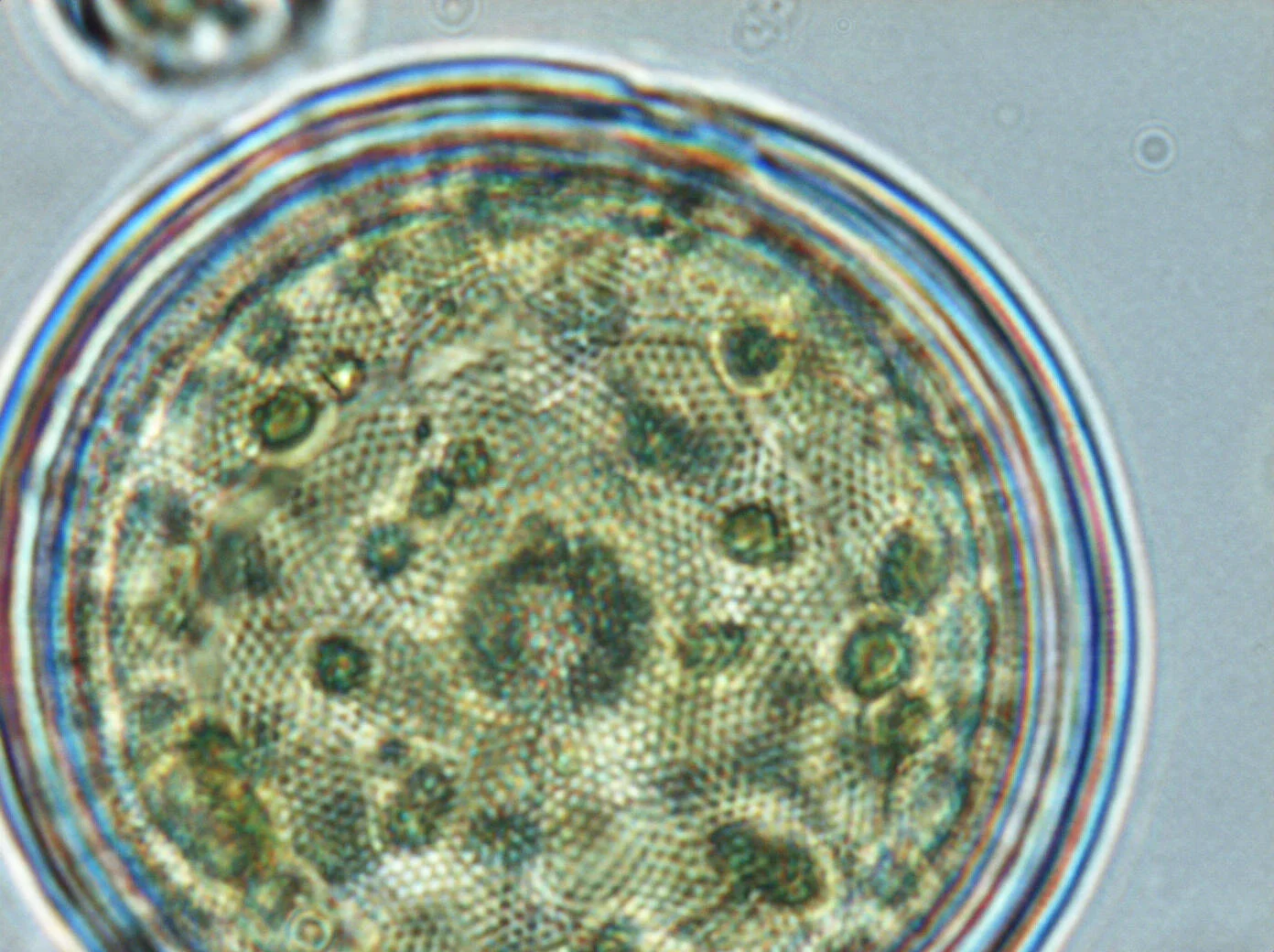Highlighted Research in the AMRI Network
The AMRI Network is an ever-expanding web of PIs, Post-docs, PhD students, Master’s students, Lab techs and research assistants within the field of aquatic microbial ecology across major institutions in Sweden. This section highlights recent, exciting publishings, new research and announcements from our network.
2023
Congratulations to AMRI researcher Rickard Stenow. his supervisor, AMRI Co-PI Helle Plough, and co-authors on Single cell dynamics and nitrogen transformations in the chain forming diatom Chaetoceros affinis (2023). Rickard defended his thesis on September 6th at Gothenburg. ISME published this chapter of his thesis on 18th September.
The ISME Journal (ISME J) ISSN 1751-7370 (online) ISSN 1751-7362 (print)
Congratulations to LNU/AMRI researchers for their multi-year analysis on the planktonic food web at the LMO Research Station, Linnaeus University.
Emil Fridolfsson , Carina Bunse, Elin Lindehoff, Hanna Farnelid, Benjamin Pontiller, Kristofer Bergström, Jarone Pinhassi , Catherine Legrand, Samuel Hylander
https://www.cell.com/current-biology/fulltext/S0960-9822(23)00924-7
Image credit: Co-authors V. V. Zlatogursky (left) and M. SØrensen (right).
Stockholm University Press Release
2022
Pinhassi J, Farnelid H, García SM, Teira E, Galand PE, Obernosterer I, Quince C, Vila-Costa M, Gasol JM, Lundin D, Andersson AF, Labrenz M and Riemann L (2022) Functional responses of key marine bacteria to environmental change – toward genetic counselling for coastal waters.
Front. Microbiol. 13:869093.
doi: 10.3389/fmicb.2022.869093
Image: Pinhassi, 2022
Congratulations to AMRI PIs Karin Holmfeldt (project leader) and Rachel Foster (co-investigator) for their VR grant funding new project, “From cultures to communities – Virus-mediated functionality changes among aquatic bacteria.”
Congratulations to AMRI researchers Mahwash Jamy, Fabien Burki, Sari Peura et al for publishing Global patterns and rates of habitat transitions across the eukaryotic tree of life in Nature Ecology and Evolution.
Image: SciLifeLab
Congratulations to AMRI researcher Jennah Dharamshi (Stockholm Uni) et al for publishing Genomic diversity and biosynthetic capabilities of sponge-associated chlamydiae in ISME this August!
Congratulations to AMRI Co-PI Mark Dopson and co-authors on their publishing of Terrigenous dissolved organic matter persists in the energy-limited deep groundwaters of the Fennoscandian Shield in Nature Communications!
Congratulations to Javi Alegria, Hanna Farnelid and Catherine Legrand on publishing their latest article, “Seasonal dynamics in picocyanobacterial abundance and clade composition at coastal and offshore stations in the Baltic Sea,” in Scientific Reports.
Image: Javi Alegria, Hanna Farnelid, sampling at K-Station, Kalmar, 2018. Source: Caroline Littlefield
Congratulations to Rhiannon Mondav (Uppsala University, Stockholm University) for the successful defense of their thesis An exploration of freshwater ecology: from streamlined genera to global networks on June 10th 2022!
Congratulations to AMRI researcher Dandan Izabel-Shen for publishing in ISME communications on 7th June!
Image: Dandan Shen, et. al
Congratulations to LNU doctoral candidate Laura Seidel, who defended her thesis “The Baltic Sea from the present to future - microbial carbon and nutrient cycling in a changing climate.”
Congratulations to AMRI PhD student Lina Mattsson, who has just earned her doctorate defending her thesis, “Microalgal solutions in Nordic conditions – industries transition toward resource recovery?”
2021
Fabien Burki et al summarise the advances on protist diversity and ecology realised by metabarcoding in the most recent issue of Current Biology, devoted to Biodiversity.
Diversity and ecology of protists revealed by metabarcoding,
Fabien Burki, Miguel M. Sandin, Mahwash Jamy
Open AccessDOI:https://doi.org/10.1016/j.cub.2021.07.066
Highlights
•Partner-switches show intergenomic epistasis in the Paramecium-Chlorella symbiosis
•Low fitness host-symbiont pairings show elevated symbiont stress metabolites
•Poorly performing pairings rapidly gain higher fitness by compensatory evolution
•Compensatory evolution could arise by either host or symbiont adaptation
A thesis published by AMRI member Eva Sörenson (LNU) in fall 2020 has bee featured in Havet, the publication on all of the latest marine research: https://www.havet.nu/samspel-bland-mikrober
Eva’s thesis explored the interplay of bacteria and phytoplankton in the microbial world - that they cooperate with each other instead of compete with each other.
New research from AMRI scientist Fabien Burki’s research group has been published this year, including a new discovery on the Meringosphaera, the enigmatic marine protist.
The Burki Lab authors:
Vasily V. Zlatogursky, Yegor Shɨshkin, Daria Drachko, Fabien Burki, Iker Irisarri, Jürgen Strassert, and Tom Williams.
Click on the Image to see the latest publishings from Burki Lab.
For more info on the Burki Lab, look here! https://www.burki-lab.net/
Burki Lab image: https://www.iob.uu.se/research/systematic-biology/burki-lab/
“NEVER BEFORE SEEN NUTRIENT EXCHANGES BETWEEN ALGAE AND BACTERIA.” NEW PUBLISHED STUDY FROM COLLABORATING RESEARCHERS AT NEWCASTLE UNIVERSITY AND STOCKHOLM UNIVERSITY
AMRI co-PIs Rachel Foster and Martin Whitehouse of Stockholm University have recently published a study in collaboration with researchers at Newcastle University that explores a new look on microscopic algae-bacteria interactions.
Click the title or Stockholm University logo to read more!
AMRI scientists have been a part of a team of 900 international researchers that maps the “urban microbiome” of the world’s subway systems. This an atlas of microorganisms contains data from 60 different cities around the world.

















![The Long-time Orphan Protist Meringosphaera mediterranea Lohmann, 1902 [1903] is a Centrohelid Heliozoan, and other publishings from Fabien Burki et al](https://images.squarespace-cdn.com/content/v1/5bab4e38b7c92ce336502225/1622627177140-ULR9DYKMUU2AYA7VLDM7/burki+lab+image.png)

